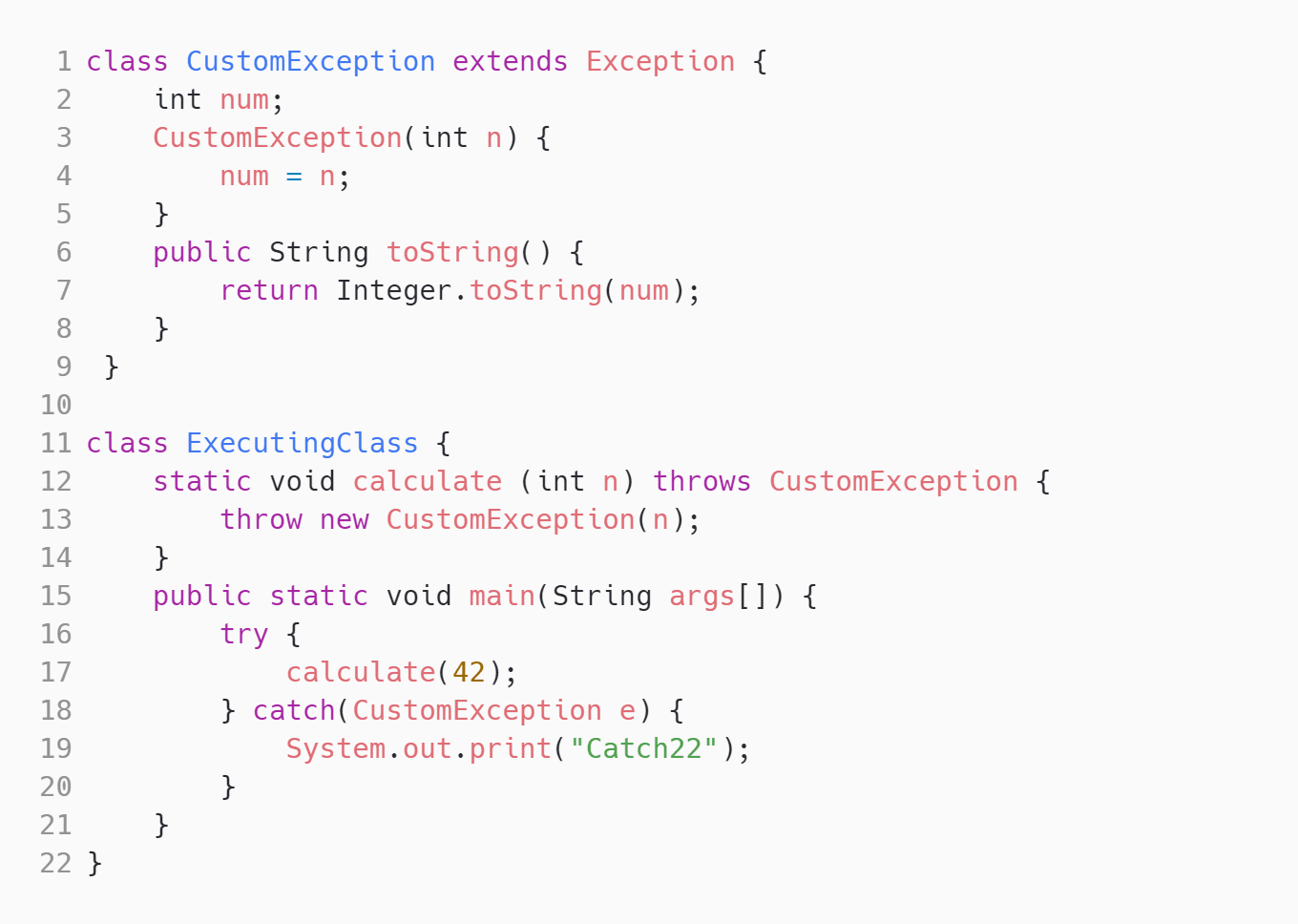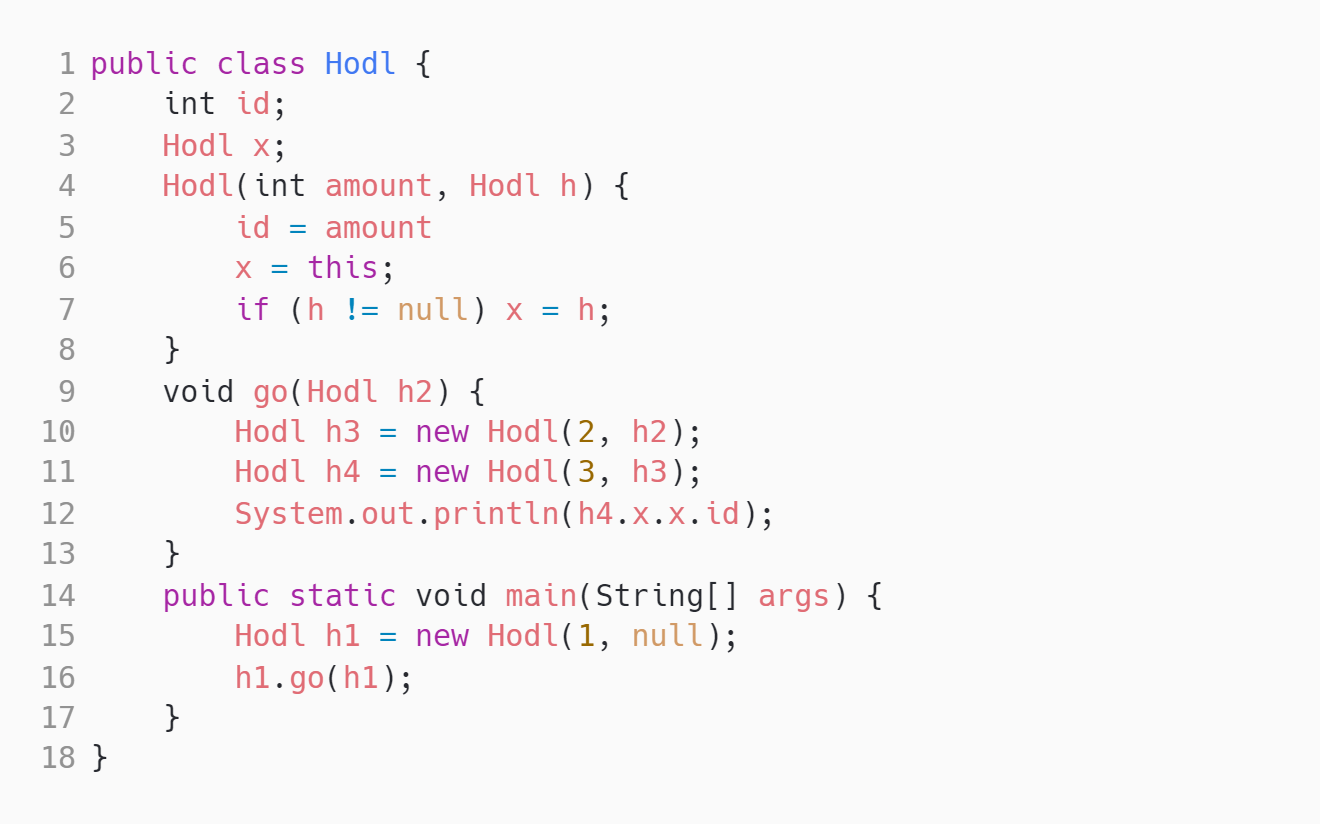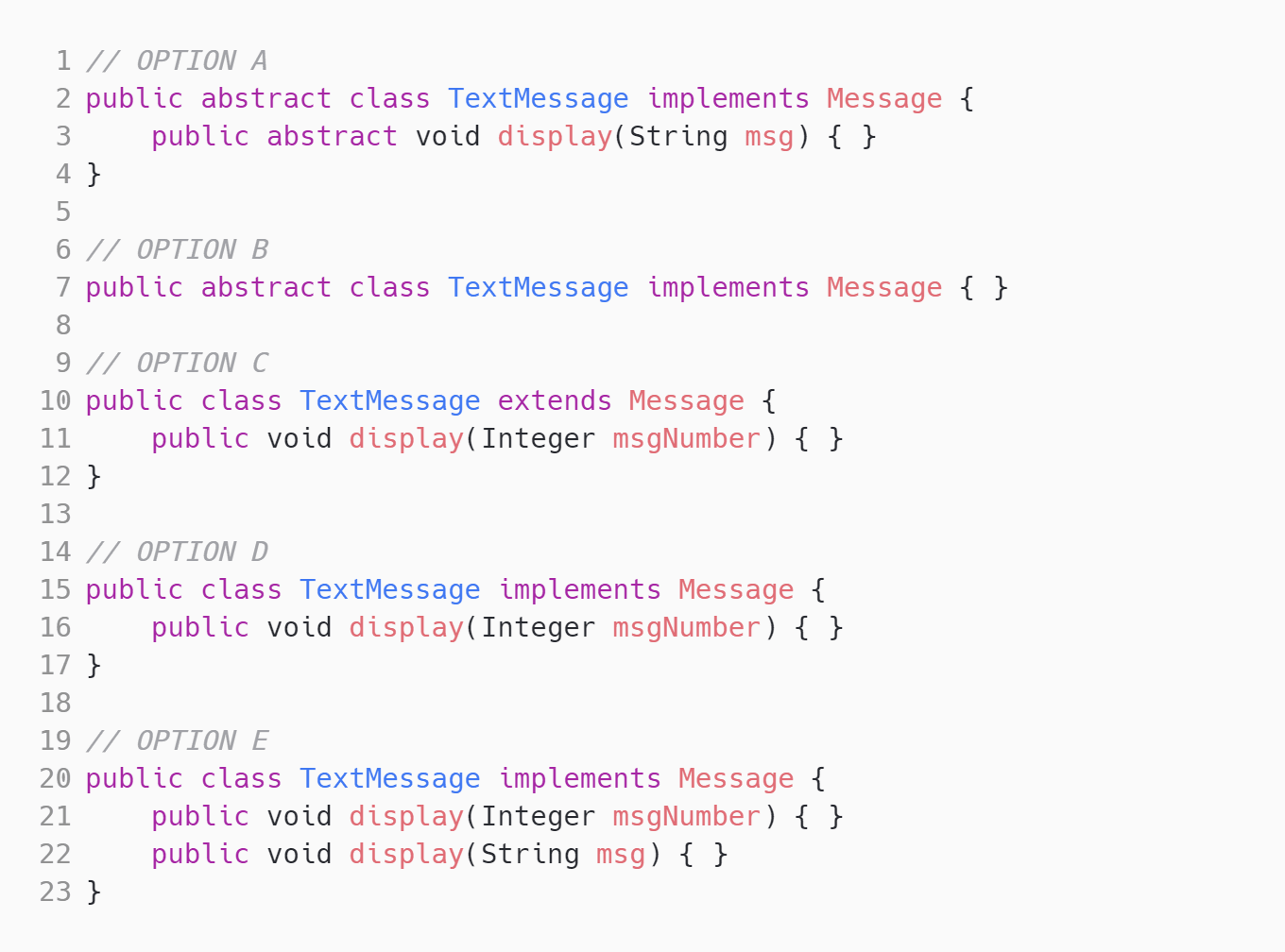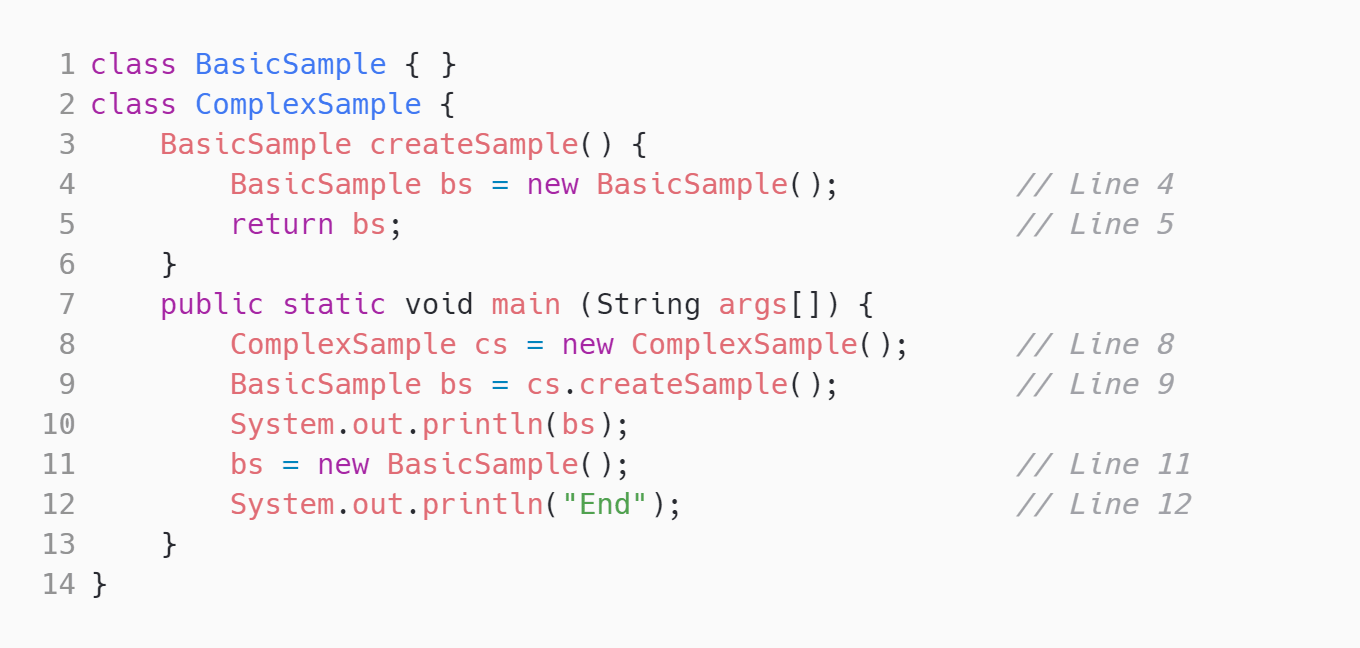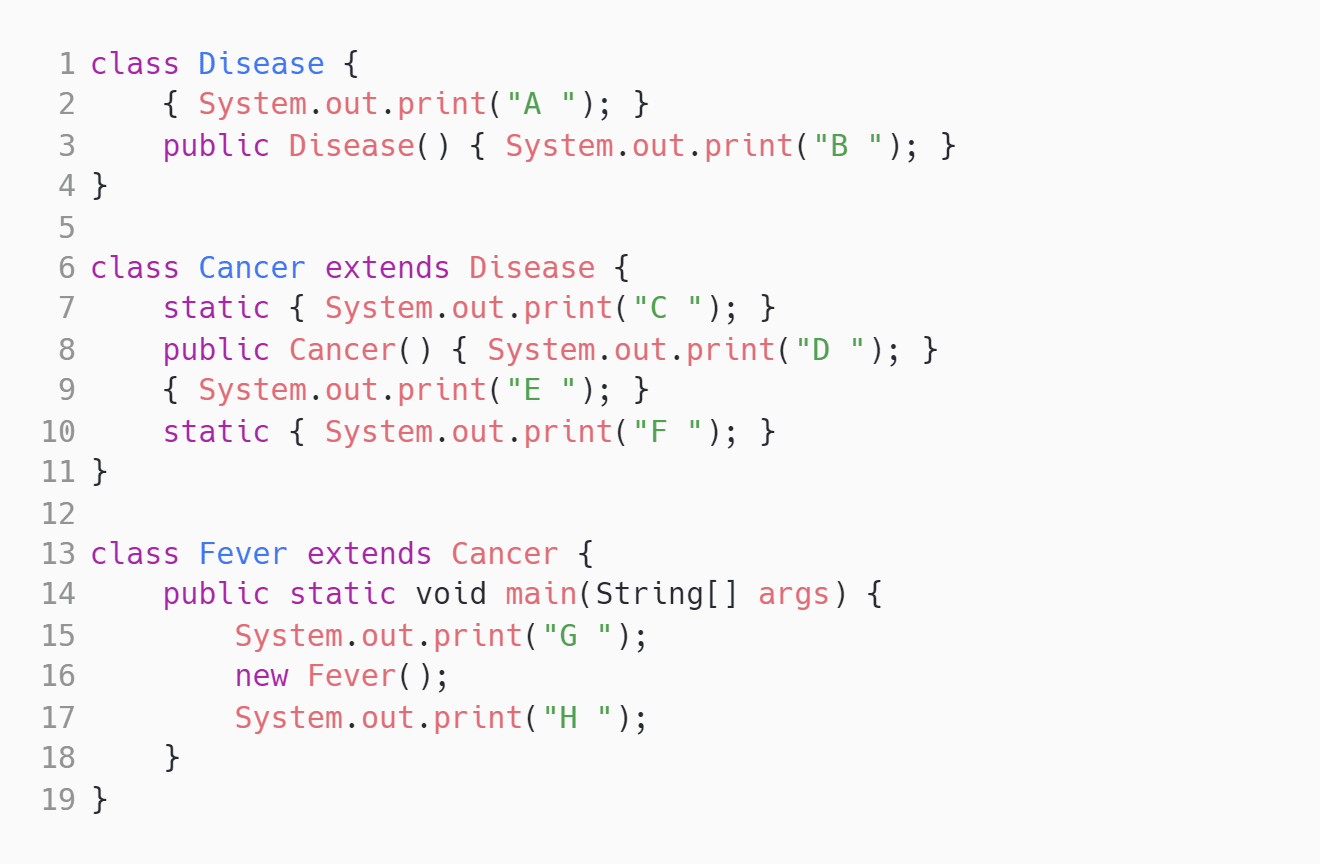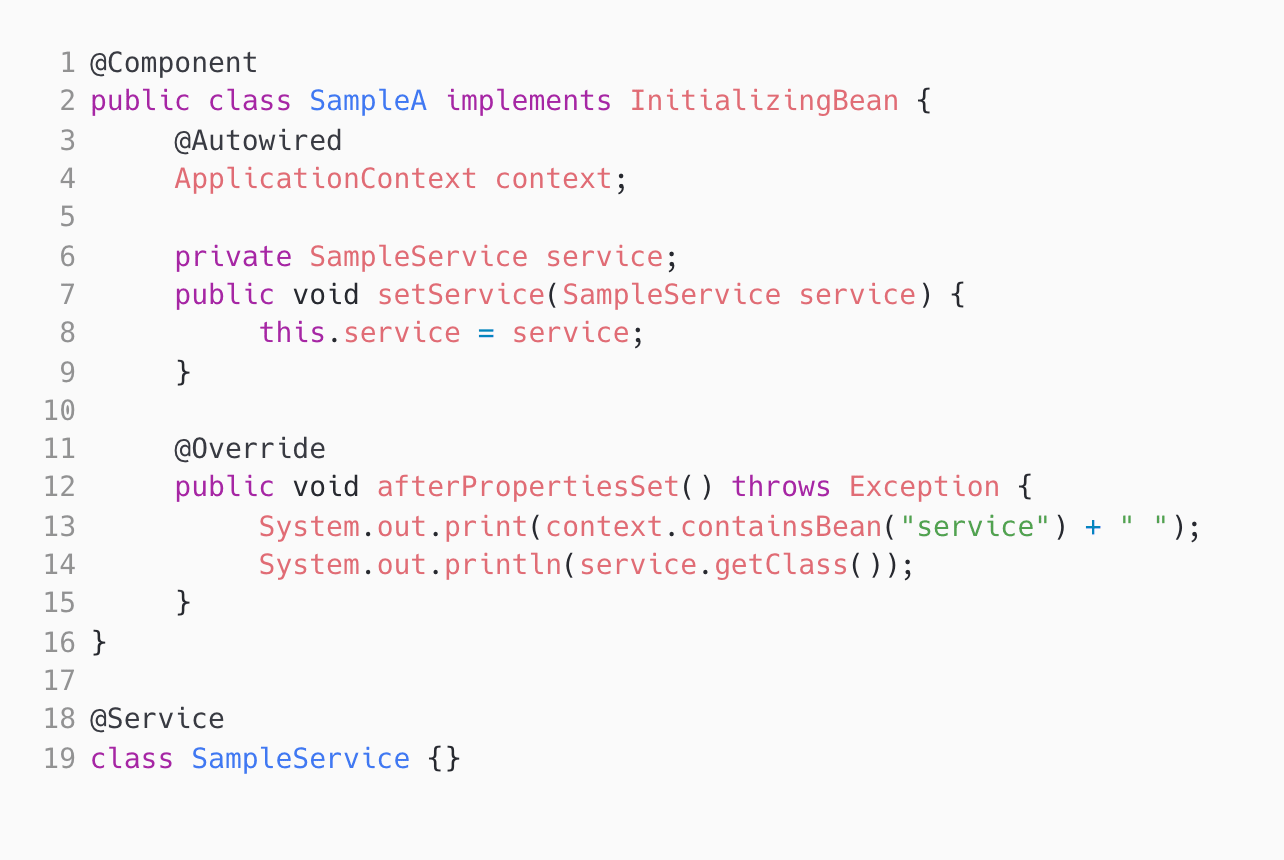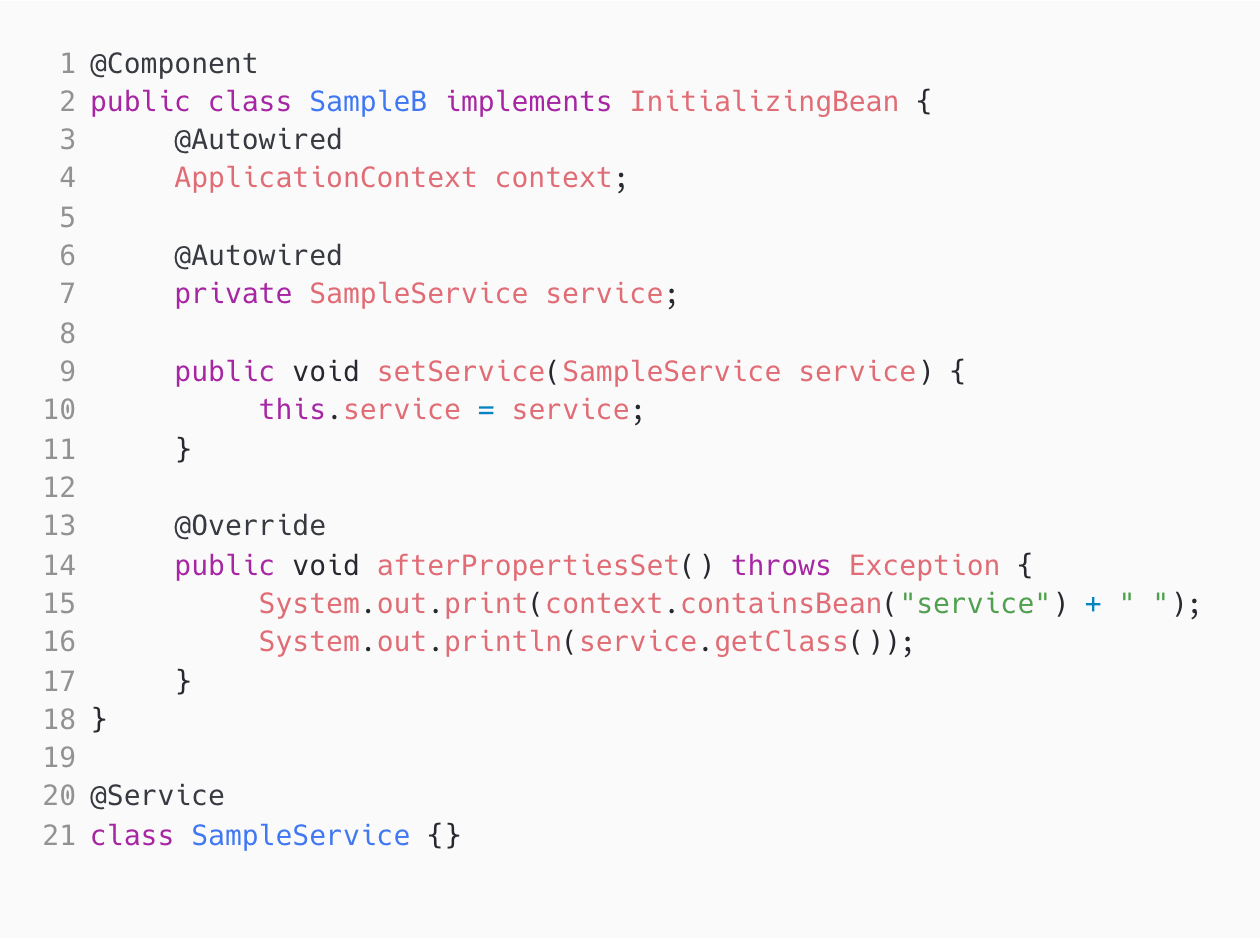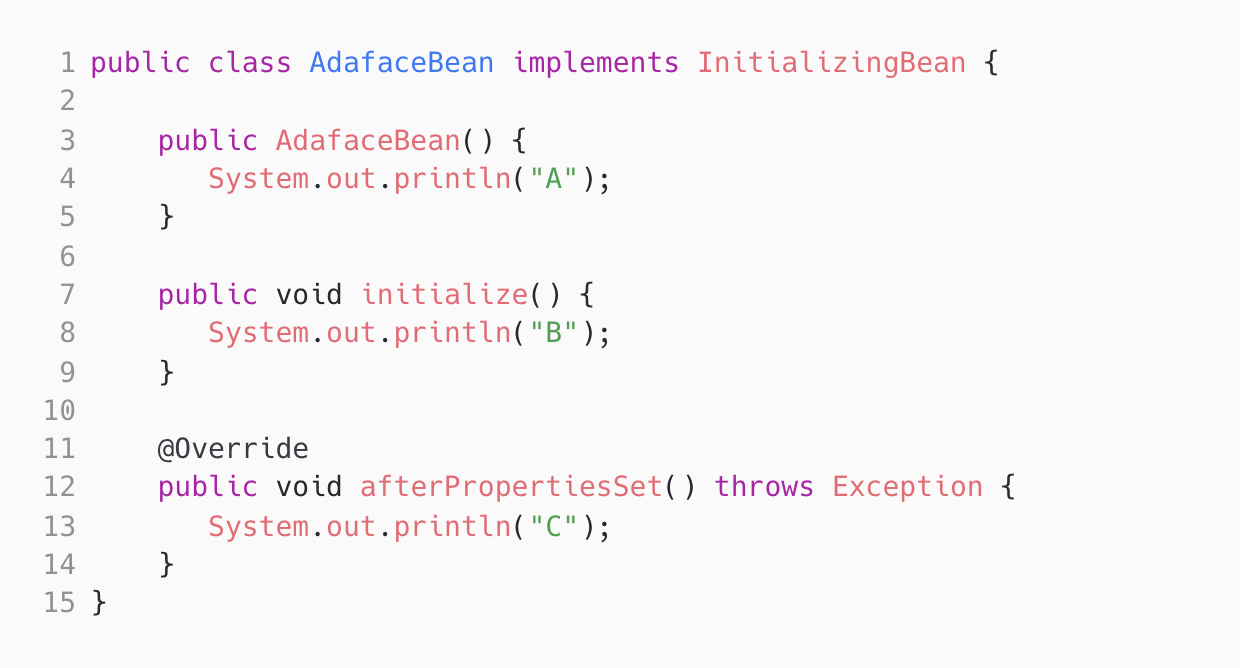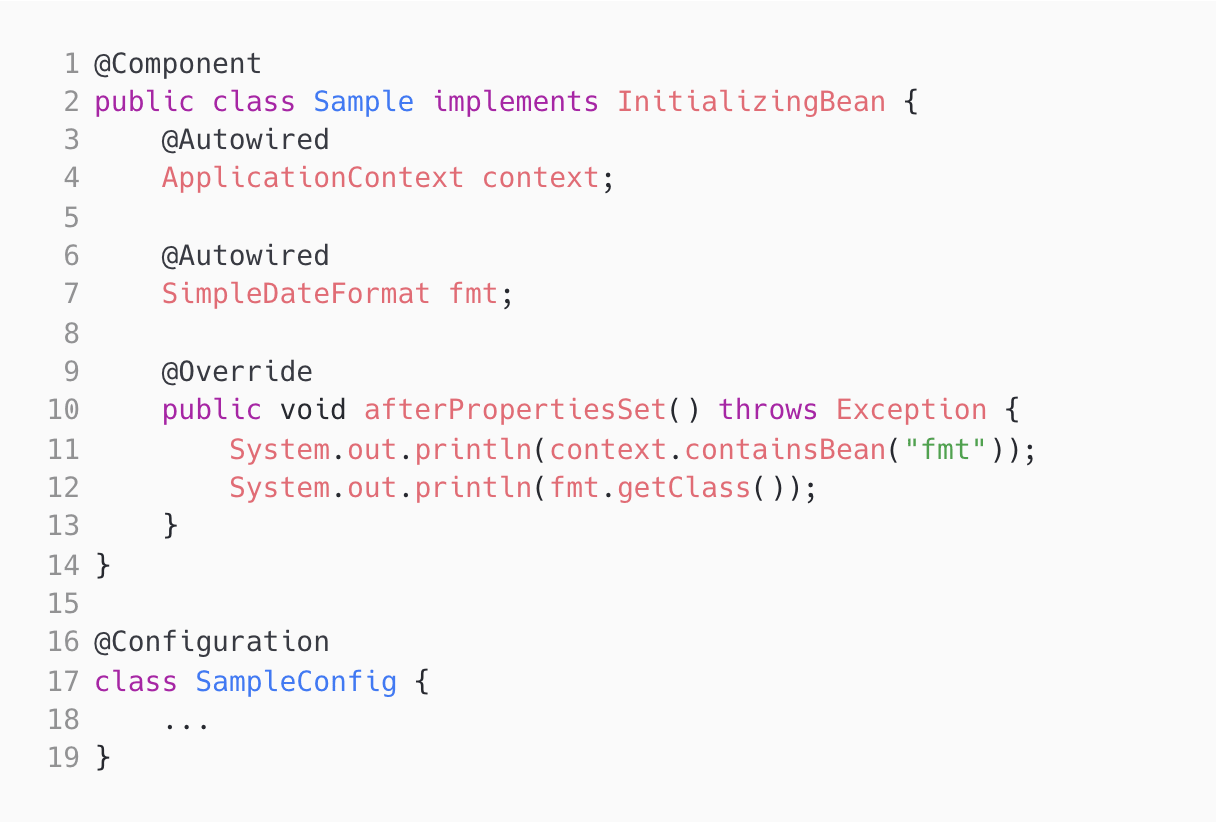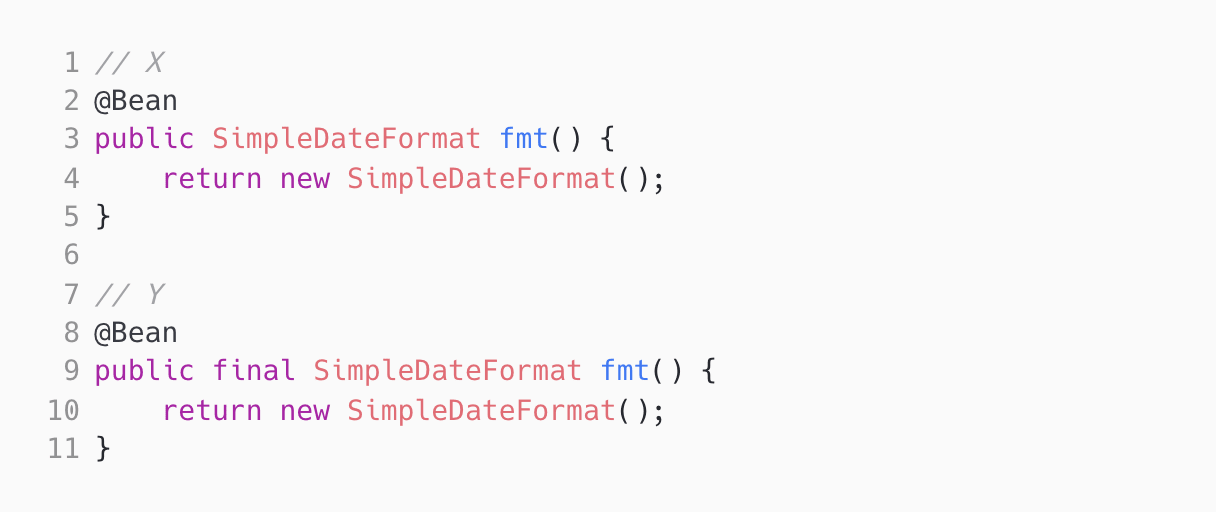Java syntax and basics: Java syntax and basics refers to the fundamental rules and principles of writing Java code. It includes knowledge of variables, data types, operators, control structures, and basic syntax rules. This skill is measured in the test to assess the candidate's understanding of the foundations of the Java programming language, which is crucial for writing reliable and efficient code.
Java OOPs: Java OOPs (Object-Oriented Programming) focuses on the concepts and principles of object-oriented programming in Java. It covers topics such as classes, objects, inheritance, polymorphism, and encapsulation. Evaluating this skill helps determine the candidate's ability to design and implement robust and modular Java applications.
Working with Databases in Java: Working with Databases in Java involves understanding how to connect, query, and manipulate databases using Java programming. It includes knowledge of SQL, JDBC (Java Database Connectivity), and database design principles. This skill is assessed to gauge the candidate's proficiency in handling data persistence and interactions with databases within Java applications.
Java data structures: Java data structures refers to the various built-in data structures provided by the Java programming language, such as arrays, lists, queues, stacks, and maps. It also covers topics like sorting algorithms and searching techniques. Assessing this skill helps determine the candidate's ability to effectively organize, store, and retrieve data to solve complex problems efficiently.
Basics of Spring framework: The basics of the Spring framework involve understanding the core features and concepts of Spring, such as dependency injection, inversion of control, and aspect-oriented programming. It also includes knowledge of Spring configuration files and annotations. This skill is measured in the test to identify the candidate's familiarity with one of the most widely used Java frameworks for building enterprise applications.
Spring bean lifecycle: Spring bean lifecycle refers to the sequence of steps involved in the creation, initialization, and destruction of Spring beans. It encompasses concepts like instantiation, dependency injection, and bean post-processing. Evaluating this skill allows assessment of the candidate's understanding of how Spring manages the lifecycle of beans, which is crucial for maintaining the integrity and scalability of Spring applications.
Securing web applications with Spring Security: Securing web applications with Spring Security focuses on implementing authentication and authorization mechanisms in Spring-based web applications. It includes knowledge of user authentication, role-based access control, and secure communication protocols. This skill is assessed to determine the candidate's ability to develop secure web applications that protect sensitive data and prevent unauthorized access.
Java Programming: Java Programming encompasses the overall proficiency in writing efficient, modular, and maintainable Java code. It includes knowledge of advanced Java concepts like multithreading, exception handling, file I/O, and Java libraries. Assessing this skill helps gauge the candidate's ability to solve complex problems using Java and implement industry best practices for software development.



















